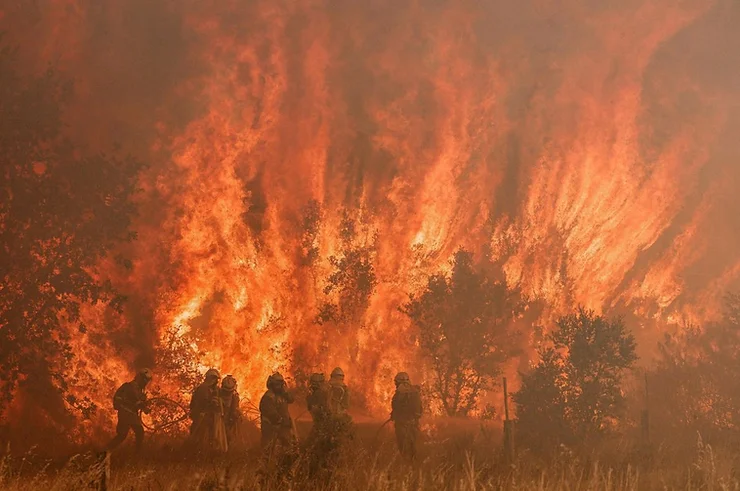By: Michael Day
The last few months have been the hottest on record in Europe. With temperatures soaring to near triple digits, wildfires, showered in heat, are burning through many countries while much of the continent is in a lengthy drought. These last few months prove an unfortunate fact looms. There are still two months left of summer.
Scientists say this relentless heat follows a trend. Heat waves in Europe are increasing in frequency faster than anywhere else in the world, including the United States. Many question what the future of the global trend of heat waves looks like. With scientists predicting that heat waves willget hotter and hotter from this point unless we find a way to prevent global warming. Our massive pollution is taking its toll on society, increasing temperatures by 2 degrees Celsius. At the surface, this might not seem like a lot, but the environment is full of fragile ecosystems, one of which isthe coral reefs in the oceans. The high temperatures cause these coral reefs to bleach, effectively killing them. Most of the heat we throw at the atmosphere is absorbed in the ocean. With the reefs dead, we can’t suck up as much heat.
However, that is only one part of the story, the scorching temperatures in England and Wales are the result of low-pressure air that has been stalled off the coast of Portugal. These low-pressure zones tend to attract air towards them, sucking in hot air from Africa and diverting it towards Europe. Over the last four decades, Europe has seen a large change in the Jet Stream, a current of air that goes across the globe. That stream of air has been split into two, leaving high-pressure systems as well as weak winds across Europe. This has caused a large buildup of heat in Europe.
Kai Kornhuber, a researcher at Lamont-Doherty Earth Observatory, part of Columbia University, said warming in the Arctic, which is occurring much faster than in other parts of the world, may be playing a role. As the Arctic warms faster, the temperature differential between it and the Equator decreases. This leads to a decrease in summertime winds, which has the effect of making weather systems linger for longer. “We do see an increase in persistence,” he said.











